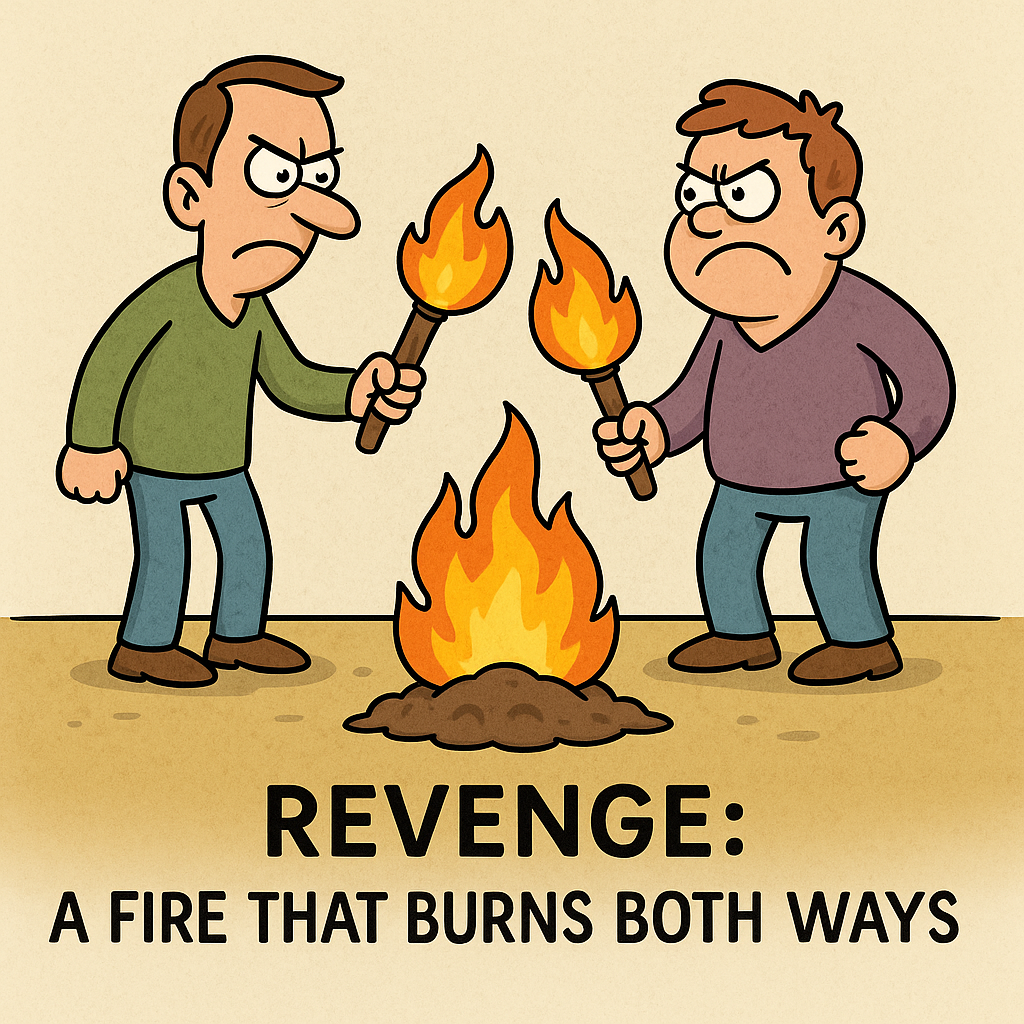Revenge often begins as a spark.
Someone hurts you, humiliates you, or breaks something precious. And deep inside, a voice whispers:
“I’ll make them pay.”
But here’s the truth: revenge may feel powerful, but it often costs more to the avenger than to the target.
🧠 The Psychology Behind Revenge
When we’re hurt, the brain craves balance.
It says: “If they hurt me, I must hurt them back to feel right again.”
But that’s a trap — because revenge doesn’t heal the wound, it just keeps it open.
Revenge is emotional, not rational. It often makes us act like the very person who caused the pain in the first place.
🧭 Real-Life Example: A Small Disrespect Turned War
Ahmed was insulted in front of his colleagues. Instead of addressing it calmly, he waited for his chance to embarrass the same colleague back.
He did. And for a moment, it felt satisfying.
But then that colleague responded. Others joined sides.
What began as one insult turned into months of workplace hostility, promotions lost, friendships broken — and no one really “won.”
This is the hidden cost of revenge: it grows faster than we can control.
🌿 A Wiser Path: Justice Over Revenge
Choosing not to take revenge doesn’t make you weak.
It means you’ve chosen to protect your peace over feeding your pain.
- 💬 Talk it out or walk away
- ⚖️ Let time or justice handle the wound
- 🕊 Channel your energy into your growth — not their destruction
True strength isn’t making others hurt.
It’s being unshakable no matter who tries to hurt you.
⚔️ A Famous Saying
“Before you embark on a journey of revenge, dig two graves.” — Confucius
Because when you strike back, part of you falls too.
✨ Final Thought
Revenge is loud but empty.
Growth is silent but powerful.
The best revenge isn’t making them feel your pain.
It’s becoming so strong and peaceful that their actions no longer have power over you.

